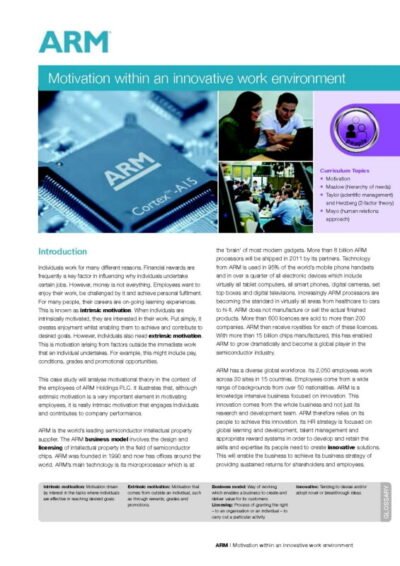Lean AI is an innovative approach that merges the principles of lean management with artificial intelligence technologies. At its core, Lean AI seeks to eliminate waste and enhance efficiency in business processes by leveraging AI capabilities. The concept draws inspiration from lean manufacturing, which focuses on maximising value while minimising waste.
In the context of AI, this means using data-driven insights to streamline operations, reduce redundancies, and improve overall productivity. By integrating AI into lean methodologies, organisations can create a more agile and responsive environment that adapts to changing market demands. The essence of Lean AI lies in its ability to harness vast amounts of data and transform it into actionable insights.
Traditional AI applications often require extensive datasets and complex algorithms, which can lead to inefficiencies if not managed properly. Lean AI, however, emphasises the importance of simplicity and effectiveness. It advocates for the use of minimal viable products (MVPs) in AI development, allowing businesses to test hypotheses quickly and iterate based on real-world feedback.
This iterative process not only accelerates innovation but also ensures that resources are allocated efficiently, aligning with the core tenets of lean thinking.
Summary
- Lean AI focuses on using artificial intelligence to streamline processes and eliminate waste in business operations.
- Implementing Lean AI in business processes involves identifying inefficiencies, automating repetitive tasks, and continuously improving through data-driven insights.
- The benefits of Lean AI in business include increased efficiency, cost savings, improved decision-making, and enhanced customer experience.
- Challenges of adopting Lean AI may include resistance to change, data privacy concerns, and the need for skilled AI talent.
- Lean AI and data management go hand in hand, as effective data collection, storage, and analysis are essential for successful implementation.
Implementing Lean AI in Business Processes
Implementing Lean AI within business processes necessitates a strategic approach that aligns with an organisation’s overall objectives. The first step involves identifying key areas where AI can add value while adhering to lean principles. This could include automating repetitive tasks, optimising supply chain management, or enhancing customer service through intelligent chatbots.
By pinpointing these areas, businesses can focus their efforts on initiatives that promise the highest return on investment. Once potential applications have been identified, organisations must engage in a thorough analysis of their existing processes. This involves mapping out workflows to identify bottlenecks and inefficiencies that can be addressed through AI solutions.
For instance, a manufacturing company might analyse its production line to discover delays caused by manual inventory checks. By implementing an AI-driven inventory management system, the company can automate stock monitoring and reorder processes, thereby reducing downtime and improving throughput. This systematic approach ensures that Lean AI initiatives are not only effective but also seamlessly integrated into existing operations.
Benefits of Lean AI in Business

The benefits of adopting Lean AI are manifold, particularly in terms of operational efficiency and cost reduction. One of the most significant advantages is the ability to streamline processes by eliminating unnecessary steps. For example, a retail business might utilise AI algorithms to analyse customer purchasing patterns, allowing it to optimise inventory levels and reduce excess stock.
This not only cuts costs associated with storage but also enhances cash flow by ensuring that capital is not tied up in unsold goods. Moreover, Lean AI fosters a culture of continuous improvement within organisations. By encouraging teams to experiment with AI tools and methodologies, businesses can cultivate an environment where innovation thrives.
Employees are empowered to identify inefficiencies and propose solutions based on data-driven insights. This collaborative approach not only enhances employee engagement but also leads to more effective problem-solving as diverse perspectives are considered. As a result, organisations that embrace Lean AI are better positioned to adapt to market changes and maintain a competitive edge.
Challenges of Adopting Lean AI
Despite its numerous advantages, the adoption of Lean AI is not without challenges. One significant hurdle is the resistance to change that often accompanies new technologies. Employees may feel threatened by the introduction of AI tools, fearing job displacement or a shift in their roles.
To mitigate this resistance, organisations must prioritise change management strategies that emphasise the benefits of Lean AI for both the business and its workforce. Providing training and support can help employees understand how these tools will enhance their capabilities rather than replace them. Another challenge lies in the integration of AI systems with existing infrastructure.
Many organisations operate on legacy systems that may not be compatible with modern AI technologies. This can lead to significant costs and resource allocation issues as businesses attempt to bridge the gap between old and new systems. A phased approach to implementation can help alleviate these concerns; by gradually introducing AI solutions alongside existing processes, organisations can minimise disruption while ensuring a smoother transition.
Lean AI and Data Management
Data management is a critical component of Lean AI, as the effectiveness of AI solutions hinges on the quality and accessibility of data. In order to implement Lean AI successfully, organisations must establish robust data governance frameworks that ensure data integrity and security. This involves creating standardised processes for data collection, storage, and analysis, as well as ensuring compliance with relevant regulations such as GDPR.
Furthermore, organisations should focus on fostering a data-driven culture where employees at all levels understand the importance of data in decision-making processes. Training programmes that emphasise data literacy can empower staff to leverage data effectively in their roles. For instance, marketing teams can utilise customer data analytics to tailor campaigns more precisely, while operations teams can use real-time data to optimise workflows.
By embedding data management practices into the organisational fabric, businesses can unlock the full potential of Lean AI.
Lean AI and Decision Making

Lean AI significantly enhances decision-making processes within organisations by providing timely and relevant insights derived from data analysis. Traditional decision-making often relies on historical data and intuition, which can lead to suboptimal outcomes in rapidly changing environments. In contrast, Lean AI enables real-time analysis of data streams, allowing decision-makers to respond swiftly to emerging trends or issues.
For example, in the financial services sector, firms can employ Lean AI to analyse market conditions and customer behaviour instantaneously. This capability allows them to adjust investment strategies or product offerings based on current market dynamics rather than relying solely on past performance metrics. The agility afforded by Lean AI not only improves decision quality but also fosters a proactive approach to risk management.
Lean AI and Customer Experience
Enhancing customer experience is one of the most compelling applications of Lean AI in business. By leveraging customer data and insights, organisations can create personalised experiences that resonate with individual preferences and behaviours. For instance, e-commerce platforms can utilise recommendation algorithms powered by Lean AI to suggest products based on previous purchases or browsing history.
This level of personalisation not only increases customer satisfaction but also drives sales conversions. Moreover, Lean AI can streamline customer service operations through the implementation of chatbots and virtual assistants. These tools can handle routine inquiries efficiently, freeing up human agents to focus on more complex issues that require a personal touch.
By analysing customer interactions in real-time, these systems can continuously improve their responses based on feedback and evolving customer expectations. As a result, businesses can provide a seamless customer experience that fosters loyalty and encourages repeat business.
The Future of Lean AI in Business
The future of Lean AI in business appears promising as organisations increasingly recognise its potential to drive efficiency and innovation. As technology continues to evolve, we can expect advancements in machine learning algorithms and natural language processing capabilities that will further enhance the effectiveness of Lean AI applications. These developments will enable businesses to extract deeper insights from their data while simplifying the implementation process.
Additionally, as more companies adopt Lean AI principles, we may witness a shift in organisational culture towards greater collaboration between humans and machines. The focus will likely move from viewing AI as a tool for automation to recognising it as a partner in decision-making and problem-solving processes. This paradigm shift will encourage organisations to invest in training programmes that equip employees with the skills needed to work alongside advanced technologies effectively.
In conclusion, Lean AI represents a transformative approach that combines the efficiency principles of lean management with the capabilities of artificial intelligence. As businesses navigate an increasingly complex landscape, those that embrace Lean AI will be better positioned to thrive in an era defined by rapid change and innovation.
Lean AI in Business is a crucial concept for companies looking to streamline their operations and improve efficiency. By implementing Lean AI principles, businesses can reduce waste and make better decisions based on data-driven insights. A related article that further explores the benefits of optimising operations is How Optimizing Office Space Can Boost Productivity. This article delves into the importance of creating a conducive work environment to enhance employee productivity and overall business performance. By adopting Lean AI practices alongside optimising office space, companies can create a more efficient and productive workplace.
FAQs
What is Lean AI in Business?
Lean AI in business refers to the application of artificial intelligence (AI) in a way that focuses on efficiency, cost-effectiveness, and practicality. It involves using AI technologies to streamline processes, improve decision-making, and drive business growth while minimizing waste and unnecessary complexity.
How does Lean AI differ from traditional AI in business?
Traditional AI in business often involves complex and resource-intensive projects that may not always deliver a clear return on investment. In contrast, Lean AI focuses on delivering value quickly and efficiently, often through the use of simpler AI models and agile development methodologies.
What are the benefits of implementing Lean AI in business?
Implementing Lean AI in business can lead to several benefits, including improved operational efficiency, cost savings, faster decision-making, enhanced customer experiences, and the ability to adapt to changing market conditions more effectively.
What are some examples of Lean AI applications in business?
Examples of Lean AI applications in business include using AI-powered chatbots for customer support, implementing predictive analytics to optimize supply chain management, and using machine learning algorithms to automate repetitive tasks and improve data analysis processes.
How can businesses adopt Lean AI principles?
Businesses can adopt Lean AI principles by focusing on specific use cases that deliver tangible value, prioritizing quick wins and iterative improvements, and leveraging agile development methodologies to rapidly test and deploy AI solutions. It also involves fostering a culture of continuous improvement and learning within the organization.
 Motivation within an innovative work environment (PDF)
Motivation within an innovative work environment (PDF)  UNISON A3 ePoster Edition 13 "Driving forward environmental business"
UNISON A3 ePoster Edition 13 "Driving forward environmental business"  OPITO A3 ePoster Edition 16 "Roles and Responsibilities"
OPITO A3 ePoster Edition 16 "Roles and Responsibilities"  Primark A3 ePoster Edition 17 "Beyond corporate social responsibility"
Primark A3 ePoster Edition 17 "Beyond corporate social responsibility" 